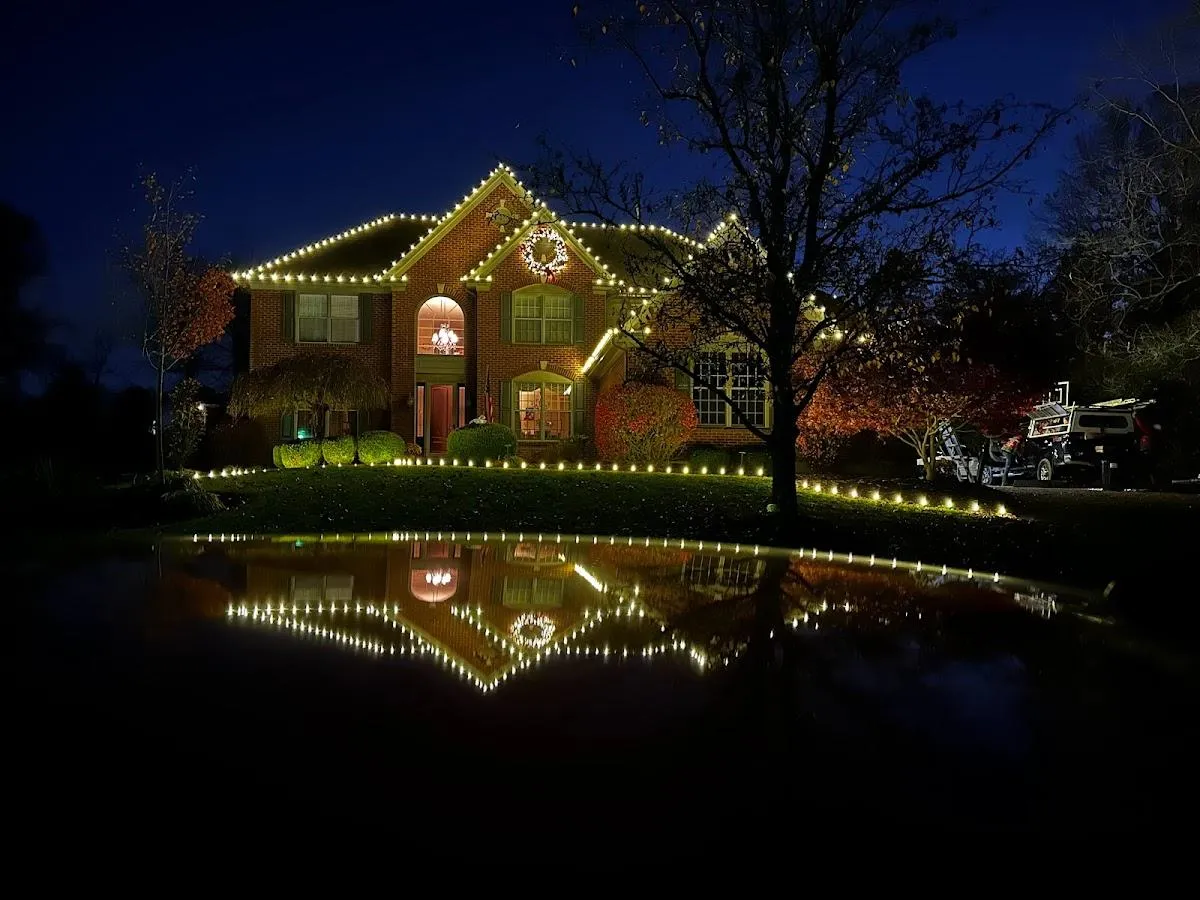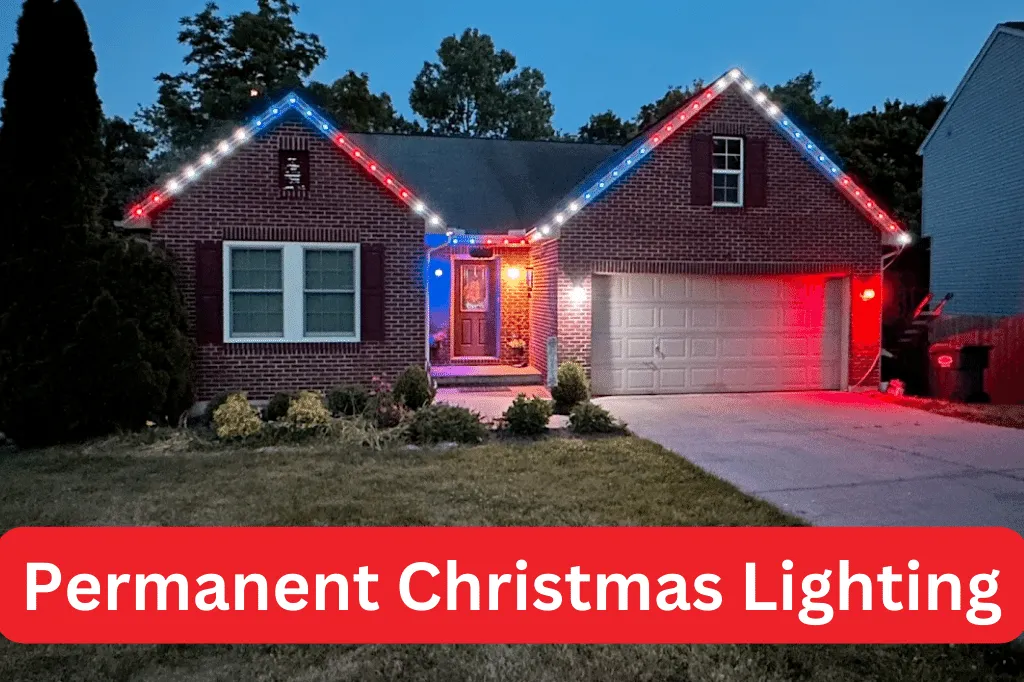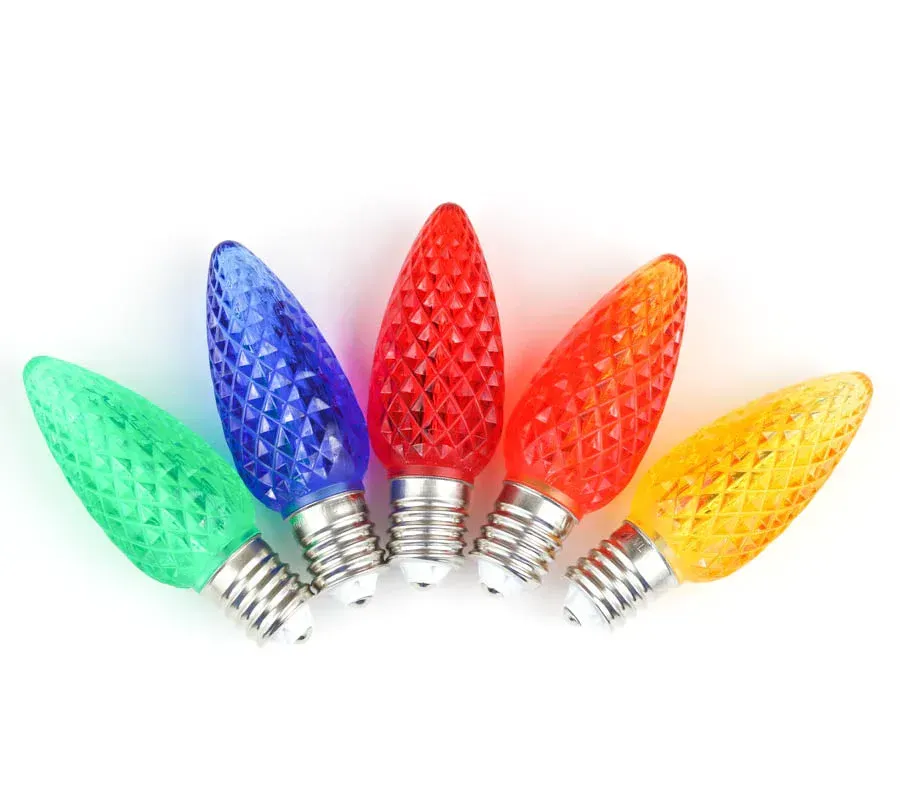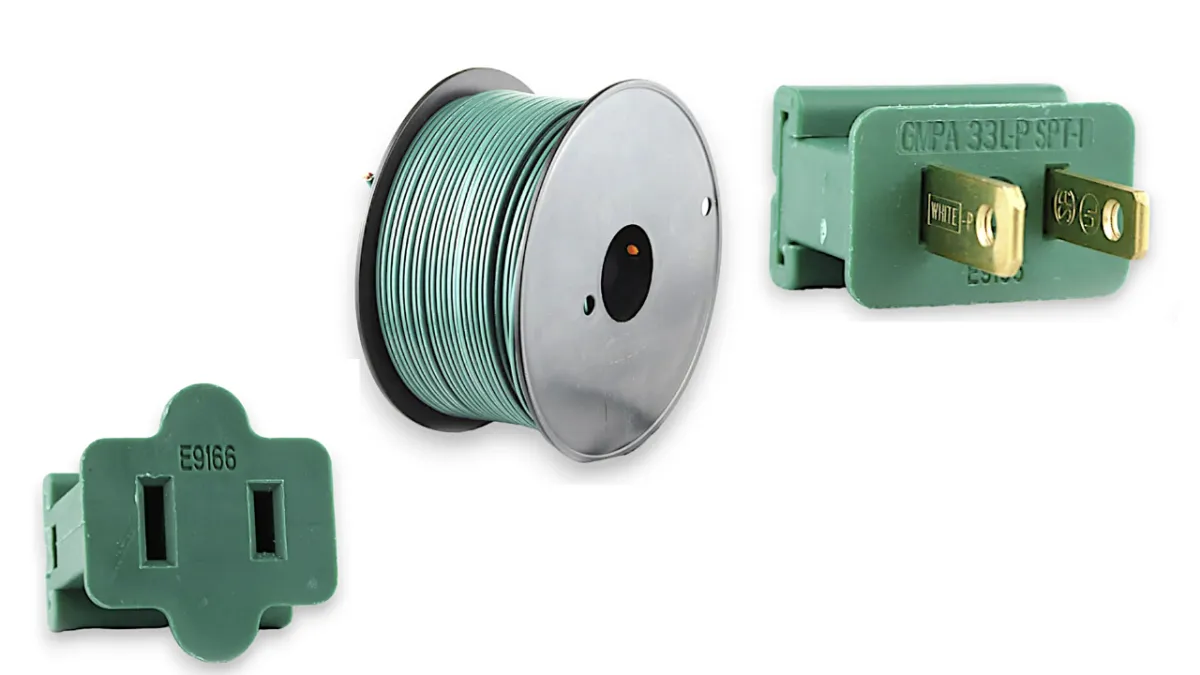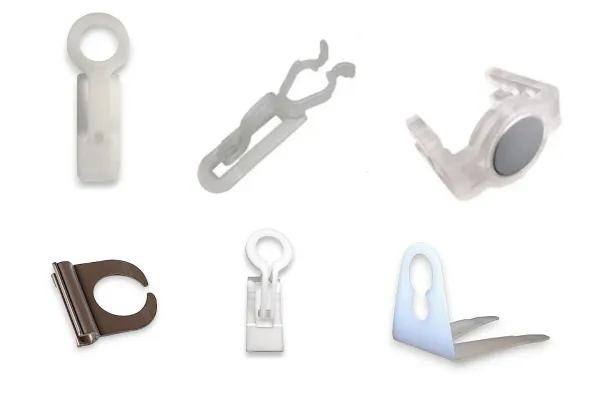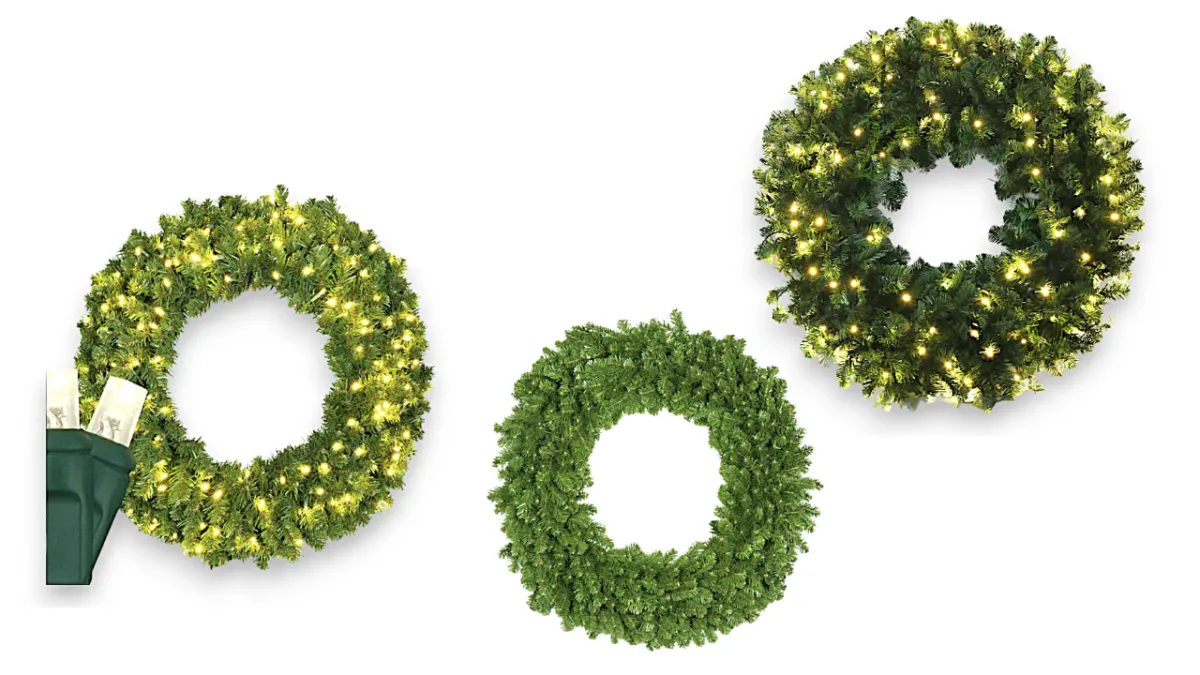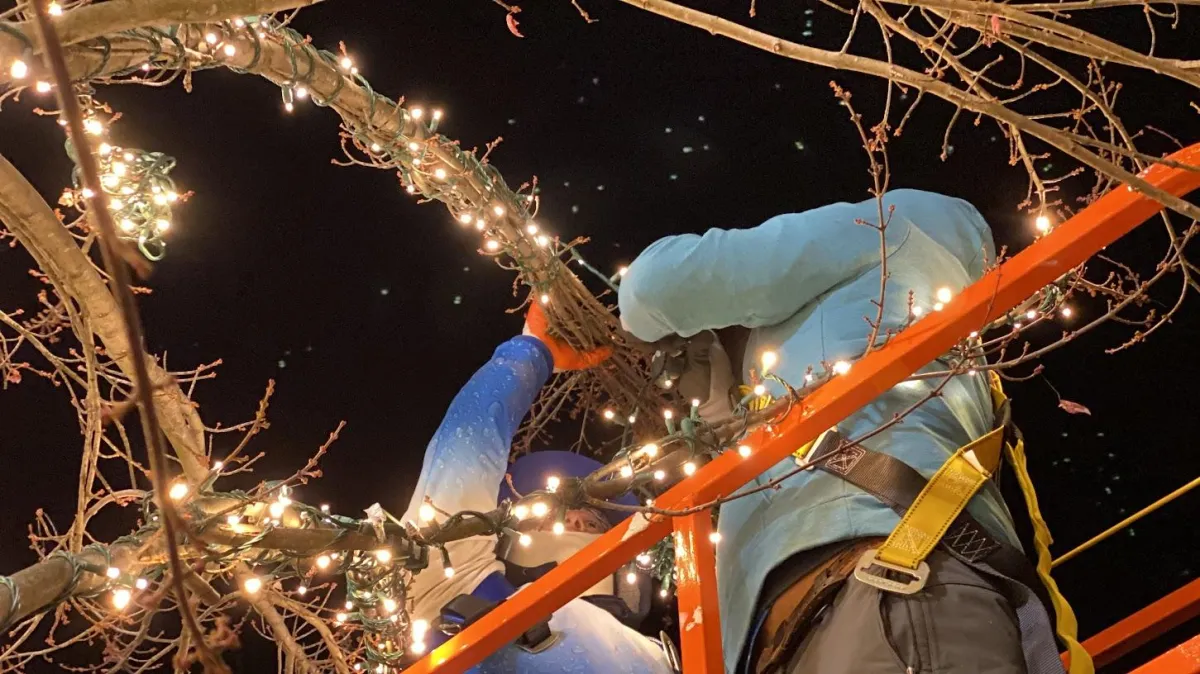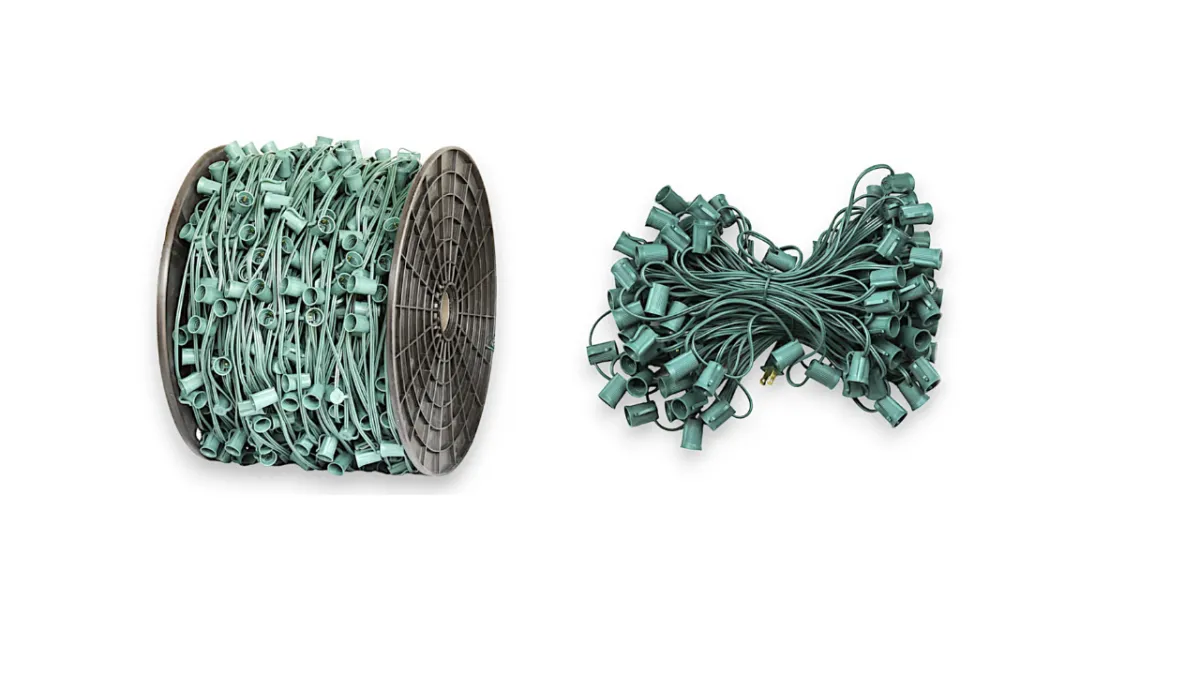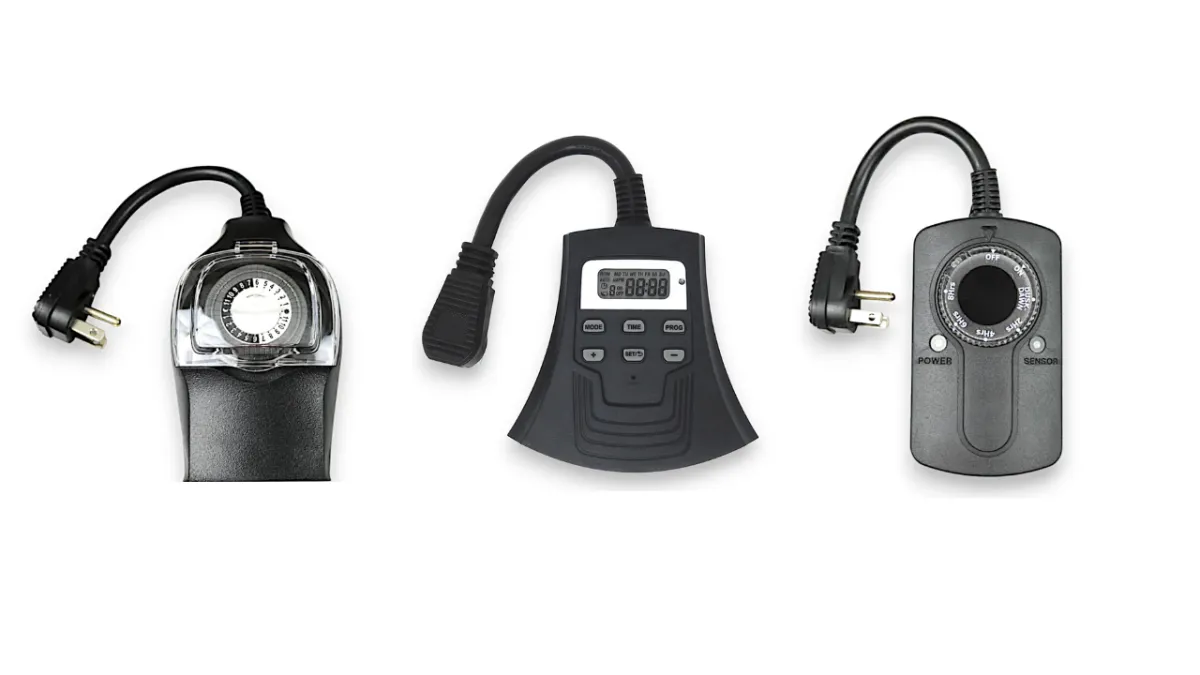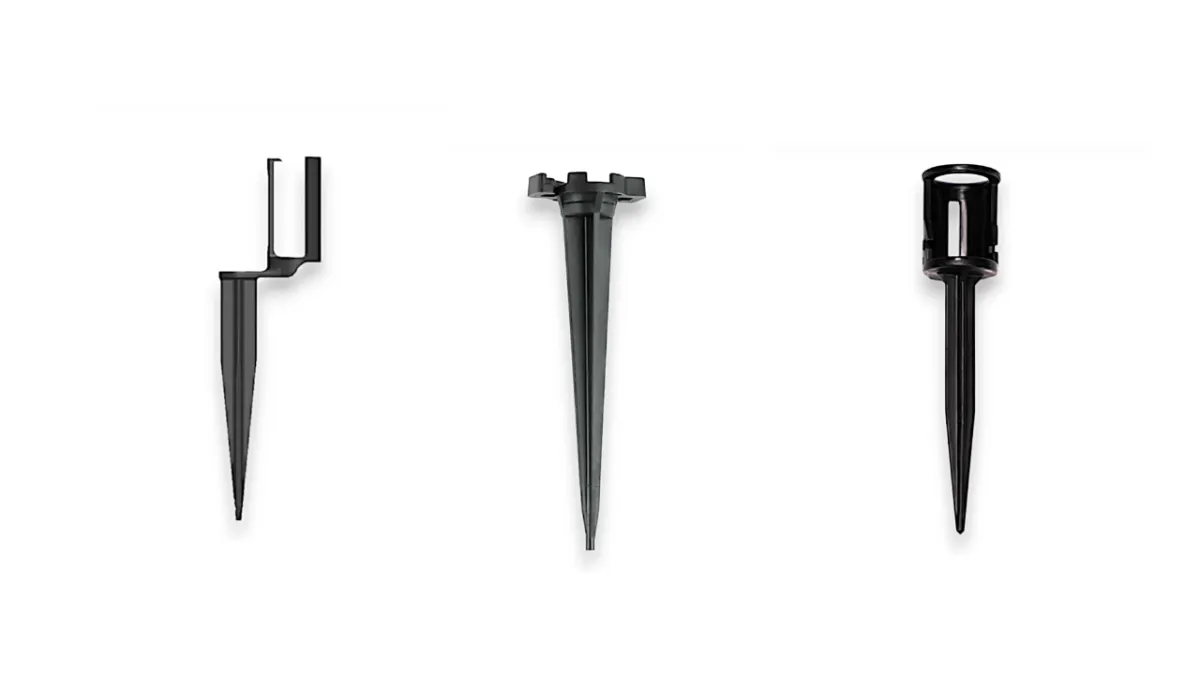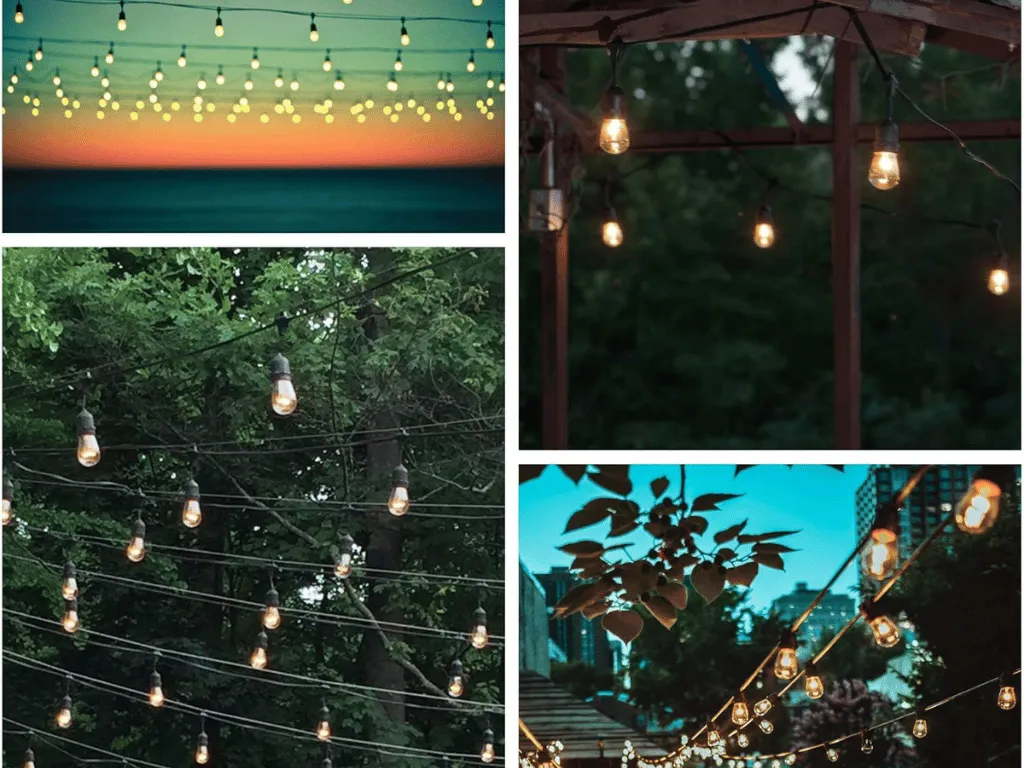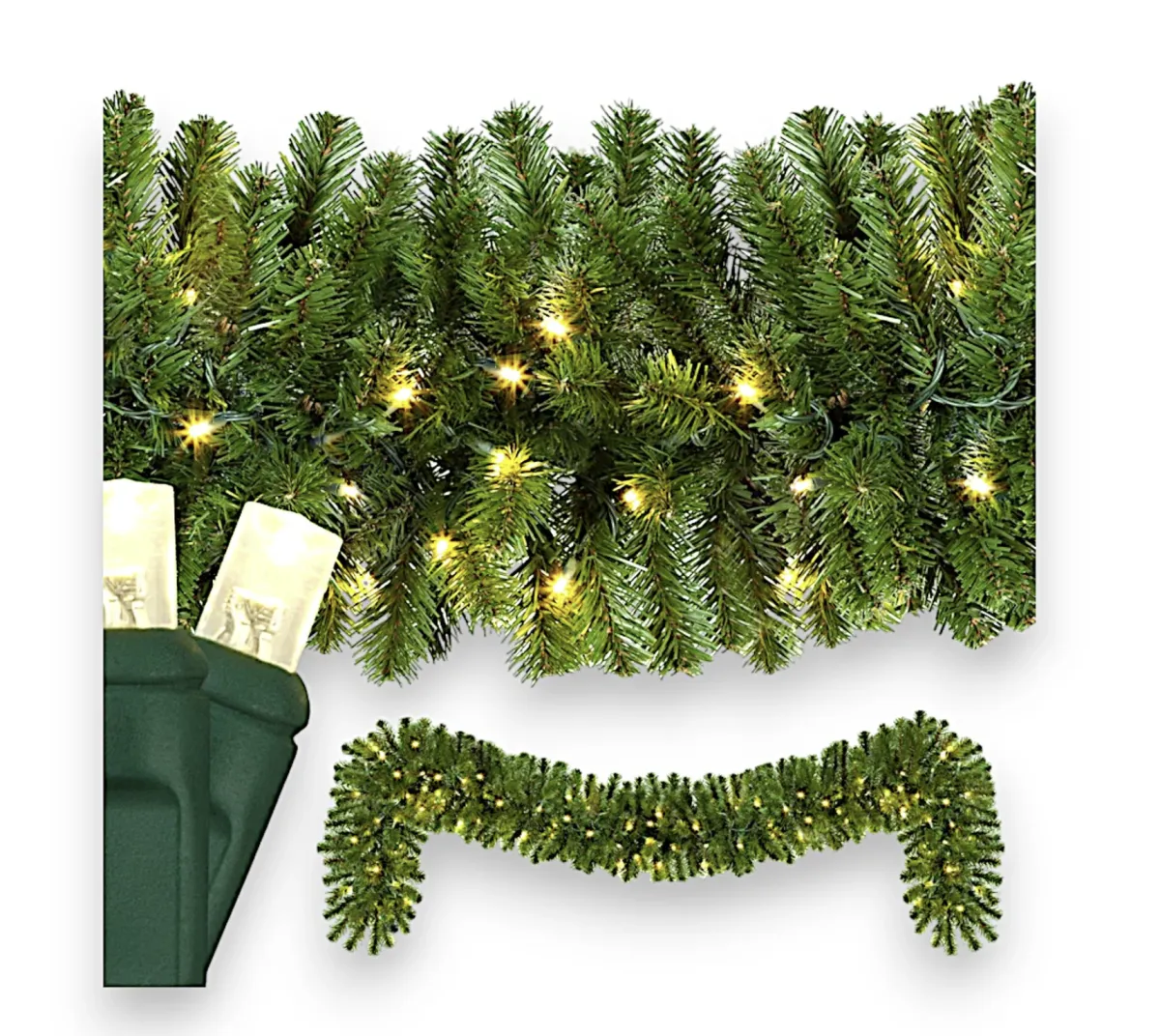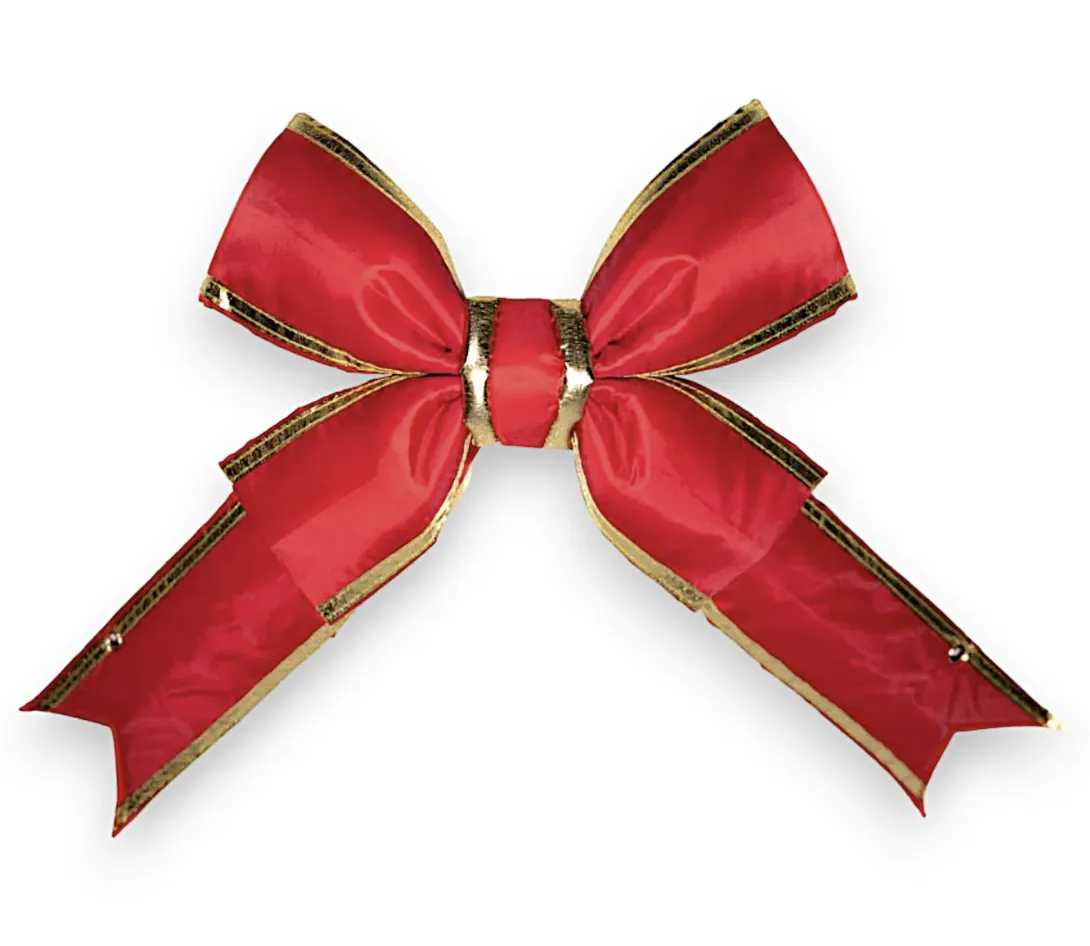All The Lights, Wire, Plugs, Garland, And Wreaths You Need To Build A Successful Christmas Lights Business
Premium Wholesale Christmas Lights supplies for Professional-Grade Installations
Your One-Stop Shop for Exceptional Christmas Lighting Solutions
Welcome to the ultimate resource for all your Christmas lights installation needs!
We understand the importance of quality, durability, and variety when it comes to building a successful Christmas lights installation business. That's why we offer an extensive selection of everything you need to illuminate the holiday season with brilliance and style.
All Christmas Lights Supplies
Professional-grade Christmas light supplies at unbeatable wholesale prices. Our premium holiday lighting solutions are specifically designed to meet the needs of professional installers, offering the highest quality and durability for stunning and reliable Christmas light displays.
EASY Starter Packages
Kickstart your holiday lighting business with our all-inclusive Christmas lights starter packages. These packages include everything you need, from bulbs and clips to socket wires and extension cords, ensuring you're fully prepared to begin your lighting installations from day one.
Discover Expert Tips on Our Blog
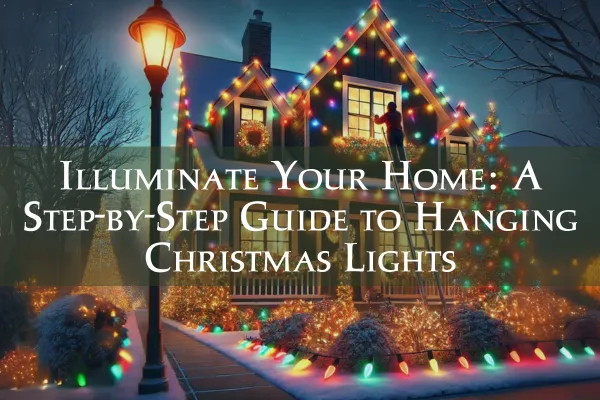
Illuminate Your Home: A Step-by-Step Guide to Hanging Christmas Lights
The holiday season is upon us, and what better way to spread festive cheer than by illuminating your home with beautiful Christmas lights? Whether you're a seasoned decorator reusing your beloved lights or a beginner ready to embark on your first holiday lighting project, our comprehensive guide is here to assist you. From selecting the perfect lights to the final magical flick of the switch, we’ll walk you through every step to ensure your light hanging experience is not only easy but also a whole lot of fun. Get ready to transform your home into a dazzling winter wonderland that captures the joy and wonder of the season!
Step 1: Essential Materials for Hanging Christmas Lights Like a Pro
Hanging Christmas lights doesn't have to be a daunting task. With the right tools and some basic know-how, anyone can transform their home into a festive wonderland. Here’s what you need to get started:
Choosing the Right Christmas Lights
Before you can hang your Christmas lights, you obviously need to pick the right ones! Whether you're setting up for the first time or planning a brand-new design, selecting the right type of lights is crucial. We offer DIY Easy Starter Packages along with a wide variety of Christmas lights to fit any theme or style.

Timers and Controllers
To really professionalize your setup, consider incorporating timers and controllers. These devices allow you to set your lights to illuminate and turn off automatically, ensuring your home is lit up at just the right time every evening, even when you’re not there. It's a fantastic way to manage your light display efficiently and ensure your home spreads holiday cheer even in your absence.
Secure Installation with the Right Clips
Achieving a polished look is all about the details. Christmas light clips are your best friends when it comes to hanging your lights with precision. They are designed for use on gutters, shingles, walkways, windows, and railings, ensuring that every string of lights is securely and neatly displayed. With the right clips, you can avoid common installation pitfalls and achieve a clean, professional-quality finish. For more detailed information on choosing the right clips, check out our blog post: Discover the Different Types of Light Clips.

Other Essential Tools and Supplies
A few additional tools and equipment can make the installation process even smoother:
- Ladder: Ensure you have a sturdy ladder that reaches the height you need safely.
- Adhesive Hooks: Great for surfaces where clips aren’t suitable, these provide a non-invasive way to hang lights.
- Light-Hanging Pole: Ideal for high or hard-to-reach areas, this tool can help you hang lights without a ladder.
Armed with the right materials and a bit of planning, hanging your Christmas lights can be an enjoyable and rewarding experience. Not only will you brighten your home, but you'll also bring joy to everyone who sees your beautifully lit residence. Ready to get started? Check out our extensive selection of lights, timers, and installation tools today and turn your holiday lighting visions into a stunning reality.
Step 2: Measuring Like a Professional
One of the secrets to achieving a seamless and stunning Christmas light display is precise measurement. Professional installers know that guessing the amount of lights needed is a recipe for mid-decorating trips to the store or uneven light distribution. Here’s how to measure like a pro:
Get the Right Tools
Start with a good tape measure. This simple tool is your best ally in determining exactly how many lights you’ll need and the lengths of each string required for your display.
Measure Your Space
Begin at the base of your house and work your way around, carefully measuring along any turns and corners to ensure you capture every detail. Don’t forget to measure doors and door frames, window frames, and any columns or other architectural features you plan to highlight with lights.
Account for Height and Peaks
If your design includes illuminating peaks or high points on your house, safety comes first. Use a sturdy ladder to reach these higher areas, and measure carefully along the area you intend to decorate. Always ensure your ladder is stable and consider having someone with you to spot you as you measure.
Record Your Measurements
Keep a detailed record of all your measurements. This record will not only help you purchase the correct amount of lights but also assist you in planning the layout of your lights. Knowing your exact measurements can save you a lot of time and frustration, allowing you to enjoy the decorating process more fully.
Plan for Extra Length
It’s always a good idea to buy a little more length than your measurements require. This gives you some leeway for adjustments and ensures you won’t run short if your measurements are slightly off or if you decide to extend your display.
By taking the time to measure accurately, you set the foundation for a holiday light display that looks both professional and enchanting. Just like the pros, you’ll be able to create a perfectly tailored and brilliantly lit holiday home that captures the joy and beauty of the season.
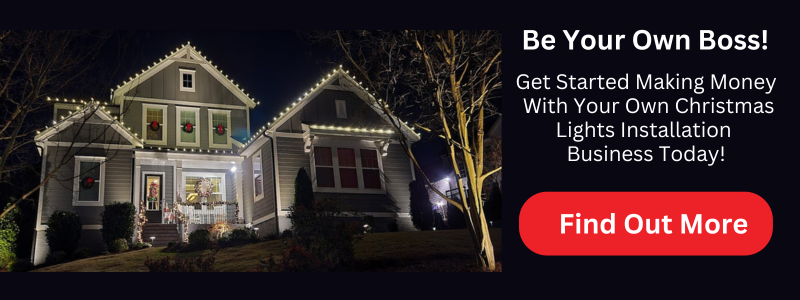
Step 3: Evaluating Hanging Surfaces for Optimal Light Installation
To ensure a seamless and secure Christmas light display, it’s essential to thoroughly evaluate the surfaces where the lights will be hung. This step is crucial for both aesthetic alignment and practical installation. Here’s how to assess your home’s exterior effectively:
Inspect Your Roofline, Gutters, and Shingles
Start by closely examining the roofline, gutters, and shingles of your home. Each of these surfaces offers potential for installing Christmas lights, but they require different types of clips or fasteners:
- Roofline: Ideal for mounting lights that highlight the shape of your home. Check for any loose sections that may need securing before you start.
- Gutters: These are great for draping lights and easy to use with universal light clips that clip onto the gutter lip. Check the thickness of the gutter lip to ensure you choose clips that fit securely. For more information on hanging lights on gutters, check out our blog post: How To Hang Christmas Lights on Gutters.
- Shingles: If you prefer to attach lights directly to your roof, shingle clips can slide under shingles without causing damage. Evaluate how tightly the shingles are attached to avoid any that are too loose or worn out.
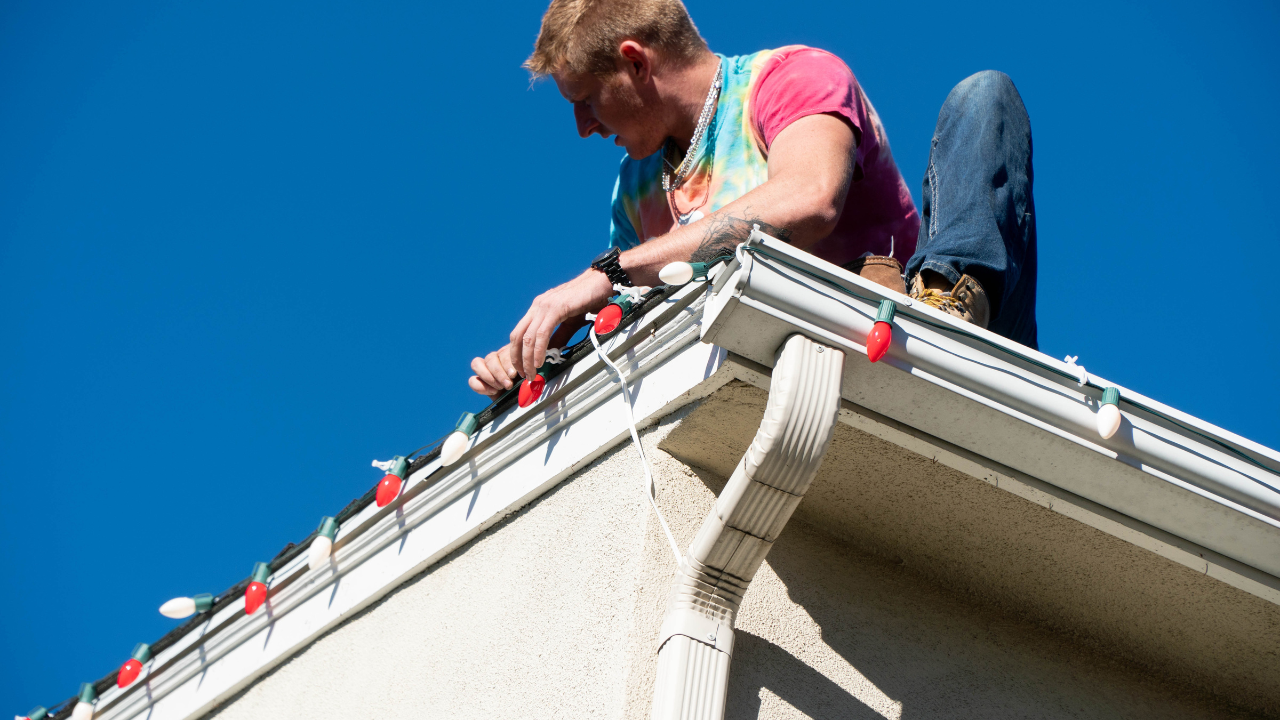
Assess Power Source Availability
Identifying accessible power sources is next:
- Outdoor Power Sources: Many new homes come equipped with outdoor outlets, which are ideal for exterior light installations. Ensure they are functional and safely located where they won’t be exposed to water.
- Indoor Power Sources: Older homes may not have outdoor outlets. In such cases, you might need to run a power cord from an indoor outlet. Check for a practical path that minimizes the risk of tripping over cords or creating hazards. You may run the cord through a window or a door, using a flat extension cord to keep it secure and unobtrusive.
Measure for Power Cords
Once you've located your power source, measure the distance to the starting point of your light display. This measurement is vital to determine the length of the power cord needed to ensure that every light is powered without overstretching or leaving loose cords that could be hazardous.
Prepare for Surprises
Especially for first-timers, unexpected challenges can arise when hanging Christmas lights. Whether it’s an oddly shaped gutter that makes clip placement tricky or an underestimated distance to the nearest power source, being prepared and flexible in your planning can make all the difference.
By taking the time to thoroughly evaluate your hanging surfaces and power source options, you lay a strong foundation for a successful installation. This proactive approach not only enhances safety but also ensures that your holiday lights display will shine brightly and reliably throughout the season.
Step 4: Choosing the Best Christmas Lights for Your Installation
When it comes to decking out your home's exterior for the holidays, selecting the right type of Christmas lights is crucial. Here’s a breakdown of the most popular options suited for hanging on roofs or gutters and how to choose the best one for your project:
Types of Christmas Lights
Icicle Lights: These are a holiday favorite, especially for roof and gutter decorations. Icicle lights hang down from the roofline, mimicking the winter icicle look. They add a touch of whimsy and a wintry feel to your home’s façade.
C7 and C9 Bulbs: These traditional Christmas light bulbs are favorites for their visible size and brightness. C7 bulbs are slightly smaller than C9s, but both can be seen from greater distances, making them perfect for outdoor displays. Check out our blog post: C7 vs C9 Christmas Lightbulbs: Which to Choose? for further reading.
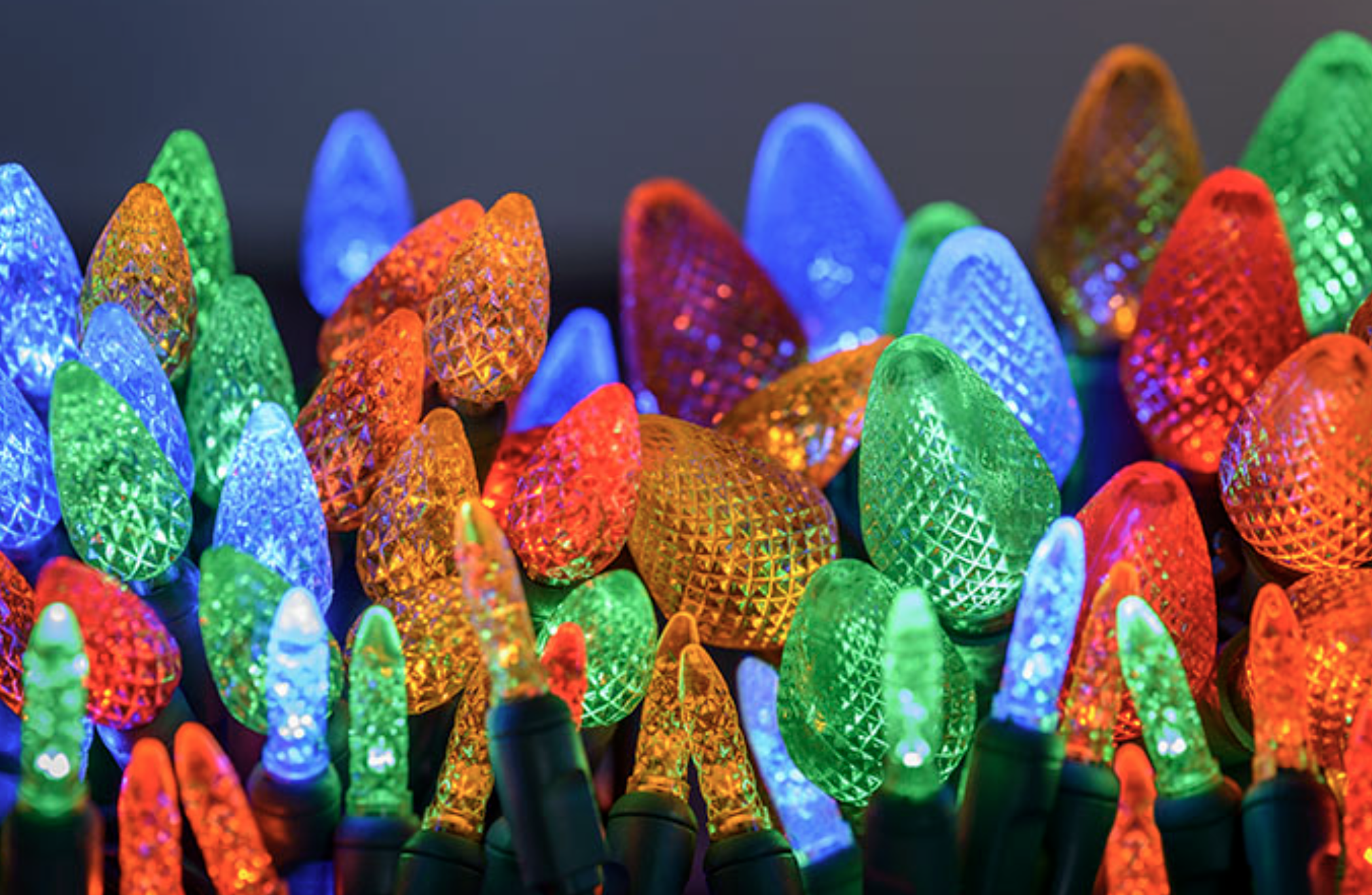
Purchasing Options
- Separate Bulbs and Stringers: Buying bulbs and stringers separately offers the most flexibility. This option allows you to customize the color of the wires to match your home’s exterior, easily replace any burnt-out bulbs, and switch out colors from year to year if desired.
- Commercial Light Sets: These are convenient as they come with bulbs and stringers together. If you’re looking for a quick and easy setup, commercial sets might be the way to go. They are available with either non-removable or removable bulbs, depending on your preference for permanence and flexibility.
- Pre-lamped Light Strings: These sets come with non-removable bulbs, which means the entire string needs to be replaced if one bulb goes out. While potentially less convenient, they are often more budget-friendly and can still provide a stunning lighting effect.
Customization and Large Projects
For those who have large areas to cover or specific design ideas in mind, purchasing a light spool might be the best choice. You can cut the wire to fit exact measurements of your roofline and landscaping, providing a tailored appearance that off-the-shelf strings can’t match. This option allows for high customization and is particularly useful for intricate or expansive lighting displays.
Considerations for Your Choice
When selecting which lights to purchase, consider factors like:
- Durability: Look for lights rated for outdoor use, capable of withstanding your local winter conditions.
- Energy Efficiency: LED options are available for both icicle and C7/C9 bulbs, offering lower energy consumption and longer life spans.
- Aesthetic: Choose colors and styles that complement your home’s architecture and existing holiday decor.
Choosing the right Christmas lights involves more than just picking the shiniest option on the shelf. By considering your specific needs, the architectural details of your installation surface, and how often you’re willing to update or replace your setup, you can create a holiday display that’s both beautiful and brilliantly customized. Whether you prefer the classic charm of C7/C9 bulbs or the whimsical allure of icicle lights, the right choice will ensure your home shines brightly this festive season.
Step 5: Calculating Christmas Lights Wattage for Safe Installation
When it comes to setting up Christmas lights, managing the electrical load is crucial to ensure safety and prevent any electrical mishaps. Understanding how to calculate the wattage and amperage of your Christmas lights will help you create a dazzling display without overloading your home's electrical circuits.
Understanding Wattage and Amperage
Before you start stringing lights around your home, it's essential to calculate the total wattage and amperage your display will require:
1. Calculate Total Wattage: To find the total wattage of a string of Christmas lights, multiply the wattage per bulb by the number of bulbs on the string. For example, if a string has 50 bulbs and each bulb is 0.4 watts, the total wattage for the string would be 20 watts.
2. Convert Wattage to Amperage: To determine how many amps your string of lights will draw, divide the total wattage by the voltage of your supply (typically 120 volts in the U.S.). Using the previous example, 20 watts divided by 120 volts equals approximately 0.17 amps.
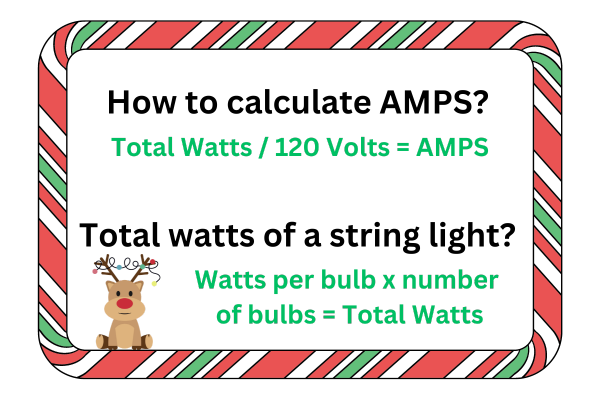
Why This Matters
Understanding the electrical load of your Christmas lights is critical because:
- Prevent Circuit Overloads: Overloading an electrical circuit can trip breakers, blow fuses, and potentially cause fire hazards.
- Ensure Circuit Capacity: Most household circuits are rated for 15 or 20 amps. It's recommended to use only up to 80% of a circuit's capacity to avoid overloads. This means a 15-amp circuit should not exceed 1440 watts, and a 20-amp circuit should not exceed 1920 watts.
Practical Tips for Safe Lighting
- Check Your Circuit Ratings: Before designing your light display, check the amp rating of the circuits you plan to use. This information can typically be found on the circuit breaker or fuse box.
- Spread the Load: If your display requires more wattage than one circuit can safely handle, spread your lights across multiple circuits to balance the load.
- Use a Power Meter: For an accurate measurement of how much power your Christmas lights are actually consuming, consider using a power meter. This device can provide real-time data on the power usage of your lights and help you manage your display more effectively.
By carefully calculating and managing the wattage and amperage of your Christmas lights, you can ensure that your holiday decorations not only look great but are also safe and efficient. Remember, a little planning and calculation go a long way in preventing electrical issues and keeping your holiday season bright and cheerful.
Step 6: Selecting the Right Christmas Light Clips for Secure Installation
One of the most overlooked yet crucial aspects of installing Christmas lights is choosing the appropriate clips. The right clips not only make the installation process smoother but also ensure that your lights hang beautifully and securely throughout the season. Here’s how to choose the best Christmas light clips for your decorating project:
Assess Compatibility
Start by evaluating the surfaces where you'll be attaching the lights, such as the roofline, gutters, or shingles. Each surface may require a different type of clip for optimal attachment:
- Roofline and Shingles: Some clips are specifically designed to fit snugly onto shingles or under roof tiles without causing damage.
- Gutters: Look for clips that can clip onto the front lip of your gutters without obstructing water flow.
Consider Bulb Size
It’s crucial to match the clips with the type and size of bulbs you are using. All-in-one clips are highly versatile and recommended because they accommodate most bulb sizes and are suitable for various applications, whether you're attaching lights to gutters, shingles, or eaves.

Installation Tips
For a safer and more efficient installation process, attach your Christmas lights to the clips before you climb the ladder. This approach minimizes the risk of tangling and allows you to manage one string of lights at a time. When using incandescent bulbs, extra caution is necessary to prevent them from striking the ladder or walls, which could cause them to break:
- Prepare on the Ground: Assemble your light strings with the clips attached on the ground to reduce the time spent on the ladder.
- Climb Safely: When climbing, ensure the lights are securely fastened and not dangling loosely to avoid any accidents.
Finding the Right Clips
To make an informed choice about which clips will best suit your needs, consult resources such as a Christmas light clips chart. These charts provide detailed information on the compatibility of different clips with various types of lights and surfaces, helping you find the perfect fit for your display.
Additional Resources
For those looking to explore a broader range of options, visiting online stores or local home improvement centers can offer insights into the latest and most effective light clips on the market. These resources often feature customer reviews and installation tips, providing valuable feedback from other users.
Choosing the right Christmas light clips might seem like a small detail, but it's a key step in ensuring that your holiday lighting is not only beautiful but also secure and durable. With the right preparation and the correct clips, you can create a dazzling holiday display that is the envy of your neighborhood.
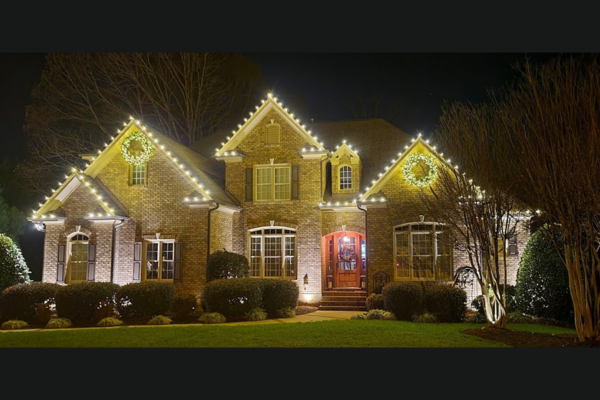
Step 7: Lighting Up Your Masterpiece
After carefully planning, measuring, and installing your Christmas lights, the moment of truth arrives—it’s time to light up your display! This final step is not only rewarding but also crucial in ensuring your setup is perfect.
Power On and Inspect
The first thing to do is to plug in your lights and turn on the power. As the lights come alive, take a moment to admire your handiwork. This is also the perfect time to conduct a thorough inspection of your display. Walk around your property and look for any bulbs that aren't lit. Sometimes, bulbs can loosen during installation or simply burn out:
- Check Connections: Make sure each bulb is screwed in tightly.
- Replace Faulty Bulbs: Have spare bulbs on hand to replace any that are not working. This ensures your light display remains vibrant throughout the season.
Setting the Timer
For convenience and energy efficiency, setting an outdoor timer for your lights is essential. Timers automate the lighting process, turning your lights on at dusk and off at a specified time:
- Popular Timing: Most homeowners choose to have their lights turn off around midnight. This schedule ensures that your lights stay on long enough to be enjoyed by evening passersby but not so late that they waste electricity.
- Energy Considerations: If energy conservation is a priority, consider setting the timer to turn off earlier, like 11 PM. This still gives ample time for your display to be seen and appreciated without excessive energy use.
Capture and Share the Magic
Once your lights are glowing and your timer is set, don’t forget to capture the magic. Take photos of your illuminated home from different angles:
- Photography Tips: Try taking photos during the blue hour (just after sunset) for a beautiful sky backdrop, or later at night for a focus on the lights themselves.
- Share on Social Media: Upload your photos to Facebook or Instagram and tag us! We love seeing how our tips and products help bring your holiday visions to life. Sharing your success not only showcases your hard work but also inspires others in their festive endeavors.
By following these steps and turning on your Christmas lights, you’ve not only created a festive atmosphere but also brought joy to your neighborhood. Remember, the holiday season is about sharing happiness and warmth, and what better way to do so than with a beautifully lit home?

What are the best types of Christmas lights for outdoor decoration?
- Whether you're setting up for the first time or planning a new design, you can choose from a wide variety of lights. Traditional incandescent bulbs offer a warm glow, while energy-efficient LEDs provide long-lasting brightness and reduced energy consumption.
How do I ensure my Christmas lights turn on at the right time each evening?
- Incorporating timers and controllers with your Christmas lights setup allows you to set your lights to automatically illuminate and turn off. This ensures your home is lit up at just the right time every evening, even when you’re not there.
What are the best clips for hanging Christmas lights on gutters and shingles?
- All-in-one clips are recommended as they work with the largest variety of bulbs and applications, ensuring a secure and neat display on gutters, shingles, walkways, and more.
What other tools might I need for hanging Christmas lights?
- Aside from light clips, consider having a sturdy ladder, adhesive hooks for surfaces where clips aren’t suitable, and a light-hanging pole for high or hard-to-reach areas.
How do I measure my house for Christmas lights?
- Start at the base of your house and measure along turns and corners. Don’t forget to measure doors, window frames, and any other features you plan to highlight with lights. Accurate measurements help avoid mid-decorating trips to the store.
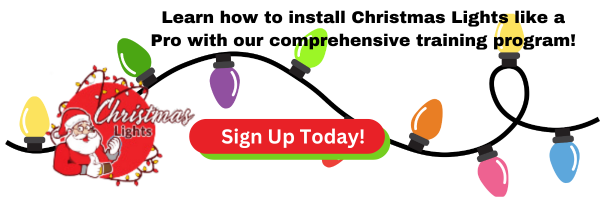
What should I check before purchasing Christmas lights?
- Before purchasing, consider the type of lights that best fit your theme, the wattage for energy considerations, and the length based on your prior measurements to ensure you have enough to cover your intended area.
How can I safely measure high points on my house for lights?
- For high areas like roof peaks, use a stable ladder and have someone with you to ensure safety. Measure carefully to ensure you cover the entire area you plan to decorate.
What should I do if I find that my Christmas lights are not working after installation?
- Check if the bulbs are screwed in tightly or need replacing. Keep spare bulbs handy during installation to quickly swap out any that do not work.

For additional help, check out our blog post: Why are Half My Christmas Lights Out?!
How can I manage the power supply for my Christmas lights effectively?
- Determine the placement of your nearest power source. If your home doesn't have an outdoor outlet, you may need to run a power cord from an indoor outlet, using a flat extension cord to minimize tripping hazards.
Why is it important to use a power meter with Christmas lights?
- Using a power meter can help you monitor how much power your Christmas lights are using, ensuring you do not exceed the safe capacity of your household circuits and helping prevent circuit overloads.
Frequently Asked Questions
What are the essential supplies needed for Christmas light installation?
The basics include bulbs (like C9 or C7), socket wire, clips, plugs, extension wires, and optionally, timers. Check out the Christmas lights starter packages to get everything you need to start.
How do I choose the right type of Christmas light bulb?
Consider the desired look and location. C9 bulbs are larger and often used for outdoor displays, while mini lights are great for trees and bushes.
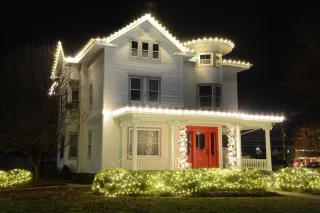
What is the difference between commercial-grade and residential-grade Christmas lights?
Commercial-grade Christmas lights are designed for heavy-duty use and can withstand harsher conditions than residential-grade lights. They are also typically brighter and more durable.
What are the different types of commercial-grade Christmas lights?
The most common types of commercial-grade Christmas lights are LED, C7, C9, mini, and solar lights.
What are the benefits of using commercial-grade Christmas lights?
Commercial-grade Christmas lights are more durable, brighter, and more energy-efficient than residential-grade lights. They are also more versatile and can be used to create a variety of different looks.
What are the drawbacks of using commercial-grade Christmas lights?
Commercial-grade Christmas lights can be more expensive than residential-grade lights. They may also be more difficult to find.
How do I choose the right type of commercial-grade Christmas lights for my needs?
When choosing commercial-grade Christmas lights, consider the following factors:
Durability: If you are using the lights for a large or outdoor display, you will need to choose lights that are durable and can withstand harsh weather conditions.
Brightness: If you need the lights to be seen from a distance, you will need to choose lights that are bright.
Energy efficiency: If you are using the lights for a long period of time, you will want to choose lights that are energy-efficient.
Versatility: If you want to be able to create a variety of different looks, you will need to choose lights that are versatile.
Cost: Commercial-grade Christmas lights can be more expensive than residential-grade lights. Set a budget before you start shopping.
Where can I buy commercial-grade Christmas lights?
Commercial-grade Christmas lights can be purchased online, at specialty lighting stores, and at some home improvement stores. Best prices are above to buy lights
How do I install commercial-grade Christmas lights?
To test commercial-grade Christmas lights before you install them, simply plug them in and turn them on. If any of the lights do not work, replace them before you put up your display.
How do I store commercial-grade Christmas lights properly?
When you are finished with your commercial-grade Christmas lights, be sure to store them properly in a cool, dry place. This will help to extend the life of your lights.
What is the average lifespan of commercial-grade Christmas lights?
The average lifespan of commercial-grade Christmas lights is 5-10 years. However, this can vary depending on the type of light and how well it is cared for.
How do I troubleshoot commercial-grade Christmas lights?
If you are having problems with your commercial-grade Christmas lights, the first thing you should do is check the wiring. Make sure that all of the connections are secure and that there are no frayed or damaged wires. If the wiring is in good condition, the next thing you should do is check the light bulbs. Replace any bulbs that are burned out.
What is the warranty on commercial-grade Christmas lights?
The warranty on commercial-grade Christmas lights varies depending on the manufacturer. Be sure to read the warranty information before you purchase your lights.
What are the safety precautions to take when using commercial-grade Christmas lights?
When using commercial-grade Christmas lights, it is important to take the following safety precautions:
Always use proper wiring.
Secure your lights to the ground or structure.
Do not overload your electrical circuits.
Be careful when using ladders or other elevated surfaces.
Copyright ©2025 All Right Reserved website designed by christmaslights.io
Terms of Service / Privacy Policy
Have questions or need assistance?
Contact us at (855)619-LITE


